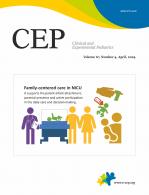Current food allergen immunotherapies (FA-AIT) offer an additional therapeutic option in a limited number of cases with limited therapeutic goals. The initial purpose of oral immunotherapy (OIT) is to protect patients from anaphylaxis due to accidental exposure, and the long-term post-discontinuation effects of FA-AIT remain unclear despite well-defined evidence of post-OIT desensitization [1]. The global treatment standard for food allergies is allergen avoidance coupled with readily available self-injectable epinephrine and antihistamines [1]. Over the past 20 years, FA-AIT, especially OIT for milk, eggs, and peanuts, has been widely studied. National regulations, academic guidelines, and clinical trends in FA-AIT differ among countries and have changed rapidly.
National FA-AIT regulations differ among countries. Until quite recently, the national regulation was considered an important specific reason why providers did not offer FA-AIT [2]. In 2020, the first standardized product (peanut [Arachis hypogaea] allergen powderdnfp [PTAH; Palforzia, Aimmune Therapeutics]) for reducing allergic reactions to peanuts in children aged 4−17 years was approved by the Food and Drug Administration, followed shortly by the European Medicines Agency [1]. Thus, OIT using PTAH in the United States (US)/Europe is officially allowed in outside research settings. PTAH is not yet available in South Korea. In March 2022, “OIT using heated milk/egg” was categorized as a new health technology by the Ministry of Health and Welfare of Korea (No. 2022-63). The phrase “new health technology” means that sufficient evidence of a technology’s safety and effectiveness was available and had been confirmed by the subcommittee of clinical specialists in the related area. Thus, OIT using heated milk/eggs in Korea is officially allowed outside of research settings. However, as in Japan, OIT has not been approved as a routine treatment and is not covered by the National Health Insurance Service in Korea.
Sublingual immunotherapy (SLIT) and epicutaneous immunotherapy (EPIT) are not yet approved by these regulatory agencies. SLIT and EPIT have focused on peanut allergy, and a phase 3 trial of peanut EPIT was published in 2023. However, SLIT and EPIT are not available in Korea. Unlike inhalant allergen immunotherapy, subcutaneous immunotherapy for food allergens has not been further developed owing to high rates of systemic reactions [1].
Official recommendations for FA-AIT through academic guidelines were provided by the European Academy of Allergy and Clinical Immunology and the Global Allergy and Asthma European Network (GA2LEN), although several scientific societies mentioned FA-AIT in formal clinical practice guidelines with minor differences [3]. According to these guidelines, OIT is a recommended treatment option for children with egg, milk, and peanut allergies to increase the threshold of reaction while on treatment but not as a treatment option for children with the goal of post-discontinuation effectiveness [3]. Thus, OIT using milk/egg/peanut in outside research settings has been allowed in most of Europe with the exception of Germany and the Netherlands [4]. According to the GA2LEN guideline, peanut EPIT using licensed pharmaceutical products is also suggested if it becomes available to increase the amount of peanut tolerated during therapy. However, official Korean academic guidelines for FA-AIT are lacking.
The clinical trends in FA-AIT also differ among countries and have changed rapidly. A large-scale online survey of the real clinical practices of allergists who administer OIT was conducted in the US in 2014 [2], Japan in 2018 [5], and Europe in 2022 [4]. In the US, 10.1% of allergists responded and 13.8% of respondents provided OIT [2]. In Japan, 69% of pediatric training facilities responded and 28% of respondents provided OIT [5]. In Europe, 102 allergy centers in 18 countries performing FA-AIT were identified, with significant variations, such as Spain (n=39) and Germany (n=1) [4]. In Korea, several specialized allergists administer OIT. Previously reported FA-AIT in Korea included OIT of hen’s egg [6-8], cow’s milk [8,9], and wheat [8]. No nationwide survey has been performed in Korea.
In the current issue of Clinical and Experimental Pediatrics, Kim et al. [10] reviewed the practical issues of OIT for egg or milk allergies. This article provides the perfect timing for the transition of OIT using heated milk/egg in real-world practice in Korea. The authors have already published conventional OIT studies using egg white powder [7] and modified OIT studies using boiled eggs [6]. This article introduces a schematized comparison of the two protocols, especially in the build-up phase [10]. In previous studies of OIT using heated milk/egg, various foods were used, such as boiled eggs, biscuits, muffins, cookies, donuts, cupcakes, bread, heated milk powder, microwave oven-heated milk, and even standard bakery products for OIT by nonprofit mass manufacturing [6,8-10].
In Europe, FA-AIT is most commonly performed in tertiary hospitals [4]. PTAH is available only through the PALFORZIA Risk Evaluation and Mitigation Strategy, a restricted program with serious safety concerns required by the Food and Drug Administration in which prescribers, healthcare settings, pharmacies, and patients should enroll. Even outside research settings, FA-AIT should be administered by specialist physicians with experience administering oral food challenge tests and managing severe allergic reactions [4,5,10].





 PDF Links
PDF Links PubReader
PubReader ePub Link
ePub Link PubMed
PubMed Download Citation
Download Citation


